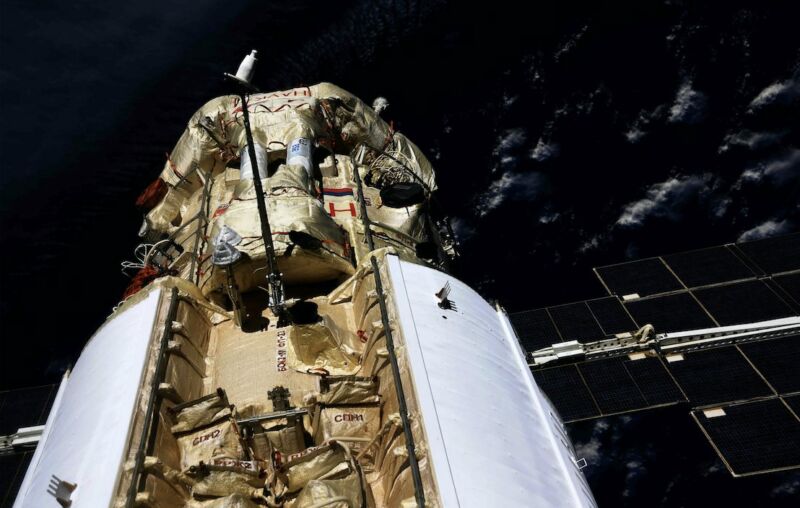
Enlarge / Russia’s Nauka module is seen attached to the International Space Station. (credit: Roscosmos)
Last Thursday the large new Russian space station module, Nauka, finally docked with the International Space Station after several technical issues en route to the orbiting laboratory. However, the problems did not end there. About three hours after linking to the station, Nauka began firing its propulsion thrusters, throwing the space station off kilter.
This led NASA Mission Control in Houston to initiate “loss of attitude control” procedures on board the station, a contingency astronauts and flight controllers train for. Then, in concert with flight controllers in Moscow, the teams commanded the station to fire its thrusters on the Russian segment of the space station, as well as a Progress supply vehicle attached to the laboratory. These combined actions prevented the station from tumbling too violently until Nauka exhausted its primary fuel supply.
Following this near miss, NASA hastily called a news conference and brought out key figures before the media, including human spaceflight chief Kathy Lueders and the leader of the International Space Station program, Joel Montalbano. Both said NASA and the Russian space corporation, Roscosmos, had the situation well in hand and downplayed the overall risk to the station and the astronauts on board.
